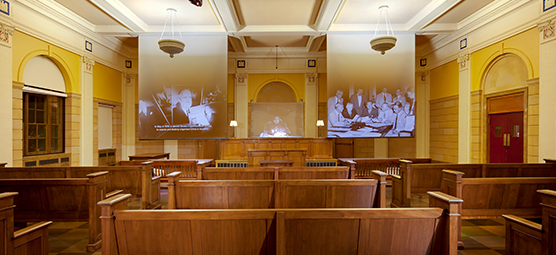Israel awash in Mob crime and corruption

The headlines look like they were ripped from American newspapers of the Prohibition era: “Another Mafia killing season may be brewing,” “Growing gang violence leads to calls for anti-terror tactics,” “Mob kingpin arrested after twin car bombings,” “Mob boss indicted for extortion.”
But they aren’t from early 20th century America. They are from contemporary Israel. Most people have heard of the seemingly endless violent conflict between Israelis and Palestinians over land and statehood, but there is also an Israeli “Mafia” that has been responsible for violent conflicts.
Some observers fear that long-simmering violent conflicts among the Israeli organized crime groups could be about to erupt. There’s even a possibility that Israelis, tired of bloodshed on all sides, could show their unhappiness at the ballot box and unseat powerful elected officials.
The Jerusalem Post noted last week that Shalom Domrani, the so-called “King of the South” part of the Jewish state, was released from prison last week after serving 15 months for tampering with municipal elections (again, a not-uncommon tactic that American mobsters such as Al Capone used).
“Domrani’s return to civilian life came as his archrival Benny Shlomo, the one with whom he has waged a deadly war in recent years, is set to be released this month after serving a year in prison for extortion,” the Post reported. “That feud is one of several that could ignite in the coming months, as a series of Mob rivals are set to be released from prison.”
Next month, Jerusalem-based Eli “Hakosem” (Magician) Naim finishes an extortion sentence as rival Yaakov “Aka” Shimon is released from a three-year term for weapons charges. Mobster Niv Zaguri of Beersheba also will be released after serving time for charges that include an effort to assassinate an Israeli journalist.
The Israeli newspaper Haaretz reported several years ago that the government was making crime-fighting of 16 crime families in the country a national priority. Many of those families make money through extortion, gambling, prostitution and drug trafficking – all staples of international organized crime in the 21st century.
Like the rest of the world, Israel has always had some people willing to break the law for profit. Famous American mobster Meyer Lansky, citing the “right of return,” fled to Israel in 1970 to avoid tax evasion charges, but the right of return does not apply to criminals fleeing prosecution, and Lansky was deported back to the United States after just two years. (Lansky ultimately beat the tax charge in 1974.)
Israel has had criminal organizations of both Jews and Palestinians, but historians believe the influx of Jews from the former Soviet Union and countries under Soviet influence in the late 1980s also brought many gangsters to the Jewish state.
Israel’s right-of-return laws also had liberal rules allowing Jews coming to the country to bring with them large amounts of capital. Clever mobsters realized this was a good way to launder large amounts of ill-gotten gains. Israel, through the 1990s, did not have laws specifically against money laundering, and according to a Feb. 21, 2000, story in the New York Times, Israel was a “seen as a paradise for money laundering.”
Some of those who emigrated to Israel maintained their contacts (and continued to launder money) with Russian Mob partners. The development of sophisticated laboratories for the production of designer drugs such as ecstasy contributed to the growth of Israeli organized crime; in the 2000s, millions of ecstasy tablets were exported from Israel to Europe and the United States.
It’s one more reminder that the American experience with organized crime is far from unique. Countries around the world have profound differences, but one constant seems to be the desire to make a dishonest buck, through violence if need be.
Feedback or questions? Email blog@themobmuseum.org





